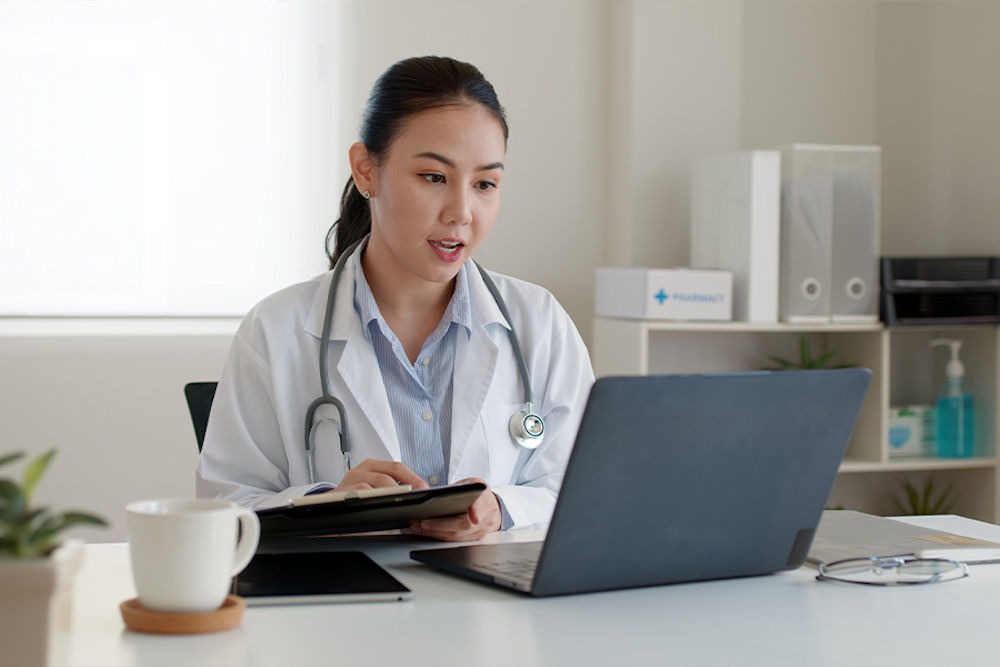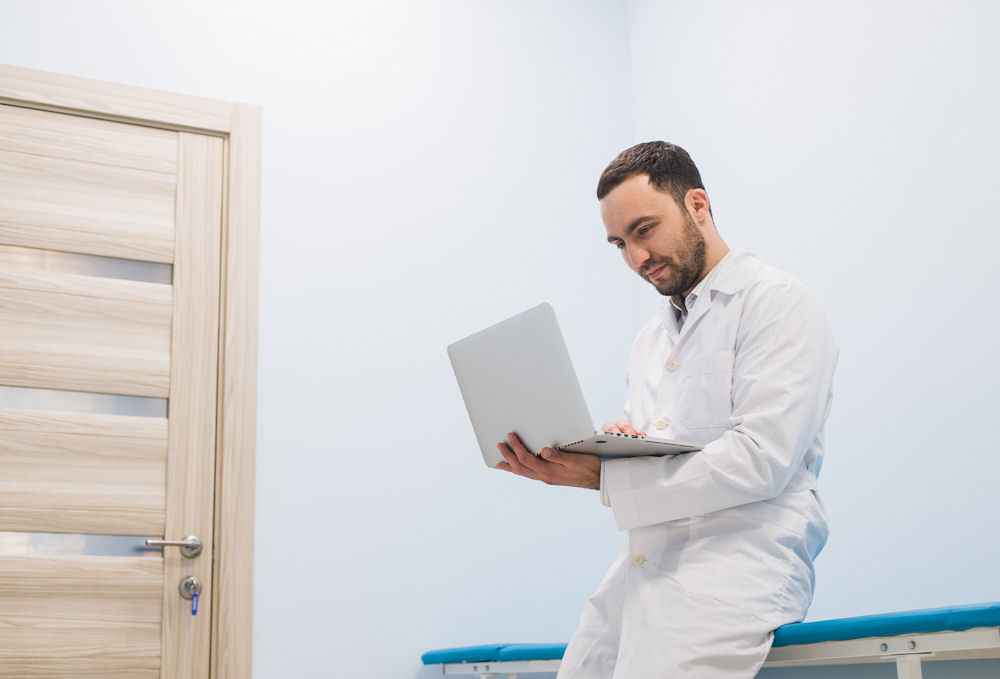Expanding access to treatment for opioid use disorder is critical in combating the opioid crisis. Medications for opioid use disorder (MOUD) have been proven to reduce overdose deaths, support long-term recovery, and improve overall well-being. However, access to these life-saving treatments remains limited due to logistical, financial, and social barriers. Mobile medication services help bridge this gap by delivering care directly to those who need it most.
Treatment goes beyond just medication. A person’s journey to recovery requires counseling, peer support, and access to social services. Without these essential components, the risk of relapse increases. Mobile services provide a holistic approach, ensuring individuals receive comprehensive care tailored to their unique needs.
Telehealth opioid treatment is another crucial tool in making treatment more accessible. Virtual appointments allow patients to connect with healthcare providers without the challenges of transportation or stigma associated with in-person visits. Discovery Institute in Marlboro, New Jersey provides both mobile medication services and telehealth opioid treatment, ensuring that more individuals have access to compassionate, evidence-based care that supports their recovery journey.
Understanding the Issue: Expanding Access to Opioid Use Disorder Treatment
New Jersey, like much of the United States, is facing a devastating opioid crisis. Overdose rates continue to rise, and many individuals struggling with opioid use disorder (OUD) lack access to treatment. Traditional healthcare settings often fail to reach those who need help the most. Mobile medication services offer a practical, effective solution by bringing treatment directly to communities affected by opioid use disorder.
Hard-to-reach populations—such as individuals experiencing homelessness, those with mental health conditions, or people without reliable transportation—are less likely to seek traditional healthcare services. Many also face stigma and distrust in medical institutions, further discouraging them from getting help. Mobile units break down these barriers by meeting individuals where they are and offering treatment in a safe, non-judgmental environment.
Mobile medication vans do more than provide medication—they act as a gateway to recovery. Delivering essential healthcare, social services, and harm reduction resources, these services help individuals take the first step toward long-term stability. With expanded mobile services in New Jersey, more people can access the treatment they need, when and where they need it most.
Human Services Committee Bill
The Human Services Committee Bill is designed to improve access to opioid use disorder (OUD) treatment, including telehealth opioid treatment. This legislation aims to break down barriers by increasing funding, expanding mobile treatment programs, and making telehealth services more accessible. These efforts are crucial, as millions of Americans struggle with opioid misuse. In 2021, approximately 9.2 million people aged 12 and older used opioids without a prescription, and 5.6 million were diagnosed with OUD.
Those affected face a significantly higher risk of early death due to overdose, accidents, suicide, or infections. Many also have encounters with the criminal justice system. By addressing these challenges, the bill ensures that more people can receive life-saving care without unnecessary obstacles.

Mobile Medication Units and Health Clinics: Expanding Access to Care
Mobile medication units (MMUs) and mobile health clinics are crucial in reaching individuals who might not otherwise access traditional treatment options. These vehicles provide medical care, counseling, and addiction treatment directly to communities in need, serving as a lifeline for many.
In New Jersey, mobile medication units are specially designed vehicles that function as fully equipped treatment centers on wheels. These large, custom-built RVs have separate sections for dispensing medication and providing medical and counseling services. Each unit includes restrooms, exam areas, and secure storage for medication to comply with DEA regulations.
Staffing on these units typically includes a physician and a nurse, ensuring patients receive proper medical care. Substance use disorder (SUD) counselors are available on-site, remotely, or through arranged transportation when needed. These mobile units operate as extensions of their affiliated Opioid Treatment Programs (OTPs), maintaining DEA approval, SAMHSA certification, and state licensure.
To receive treatment through New Jersey’s mobile units, patients must meet specific eligibility criteria, such as residency in the state, a history of injection drug use, a positive opioid test, or a year-long history of opioid use disorder, and not currently being enrolled in another MOUD program.
Mobile health clinics go beyond medication-assisted treatment (MAT) by offering comprehensive medical services to individuals struggling with opioid use. These clinics provide primary healthcare, wound care, infectious disease screenings, and vaccinations. Many also offer mental health counseling and connections to housing and social services, ensuring a holistic approach to recovery.
By removing transportation barriers and bringing care directly to patients, mobile health clinics make it easier for individuals to engage with healthcare professionals and receive ongoing support.
Opioid treatment can be accessed online or by phone through telehealth opioid treatment. Virtual care allows individuals to consult with healthcare providers, receive prescriptions, and access counseling services without needing to visit a clinic in person. This approach is particularly beneficial for those who face transportation challenges, live in remote areas, or experience stigma when seeking in-person treatment.
Telehealth opioid treatment provides flexibility while maintaining the quality of care, ensuring that patients receive the necessary medical and psychological support for their recovery journey.
Addressing Concerns and Misconceptions About Mobile and Telehealth Treatment
Some people have concerns about mobile and telehealth opioid treatment, questioning whether these options are as effective as traditional in-person care. However, research and established guidelines show that these services provide safe, effective, and convenient access to life-saving treatment. Below, we address some common misconceptions.
Yes, telehealth treatment is just as effective as in-person care for opioid use disorder. Studies show that people receiving medication-assisted treatment (MAT) through telehealth stay in treatment just as long—if not longer—than those attending in-person visits. Virtual care allows patients to connect with doctors and counselors from home, making it easier to stick with treatment while balancing work, childcare, or transportation challenges. Telehealth also increases access for people in rural or underserved areas who might otherwise struggle to get the care they need.
Mobile treatment units protect patient information by following strict privacy laws, including HIPAA. These units are designed with private consultation areas where patients can speak with medical professionals without being overheard. All medical records are securely stored, and only authorized staff have access. The goal is to provide care in a safe, nonjudgmental environment where people feel comfortable seeking help.
Strict safeguards are in place to prevent medication misuse. Mobile units follow federal and state regulations to ensure that medications like methadone and buprenorphine are given safely and only to those who need them. Patients are monitored closely, undergo regular check-ins, and may be required to take supervised doses. Prescription tracking systems help prevent abuse, and patients receive counseling to support their recovery and ensure proper medication use.

Funding for Telehealth Opioid Treatment in New Jersey
New Jersey’s taxpayers are not directly funding the expansion of opioid treatment programs. Instead, these efforts are being supported by settlement payments from opioid manufacturers, distributors, and retailers. In 2022, New Jersey began receiving funds from a nationwide litigation settlement aimed at holding these companies accountable for their role in the opioid epidemic. The state is set to receive over $1 billion over 14 years, with funds allocated to expanding addiction treatment and prevention programs.
A strategic plan is being developed to ensure these funds are used effectively. The initial funding includes over $95 million dedicated to expanding harm reduction services, peer recovery centers, mobile medication units, rapid referral platforms for treatment, and housing support for individuals in recovery. By investing in comprehensive treatment solutions rather than punitive measures, these funds are helping to save lives and improve community health.
New Jersey is expected to expand mobile and telehealth treatment funding, helping more people access care in their communities. Future advancements may include AI-driven patient monitoring, expanded telehealth services, and new policies aimed at making treatment even more accessible and effective.
Receive Drug Addiction Treatment at Discovery Institute
If you or a loved one is struggling with opioid addiction, Discovery Institute offers compassionate, evidence-based care through our telehealth treatment programs. Our telehealth opioid treatment services provide safe, convenient access to medical support, counseling, and medication-assisted treatment from the comfort of your home. We understand that barriers like transportation, work schedules, and stigma can make it difficult to seek help, which is why we make treatment more accessible through secure virtual appointments.
You can overcome this, and you don’t have to do it alone. Contact Discovery Institute today to learn how our telehealth services can support your journey to lasting wellness.
Provide the highest quality clinical care through evidence-based treatment practices and innovative supportive strategies to improve and heal the lives of individuals suffering from substance use disorder. It’s our goal to lessen the adverse impact on families and society as a whole through providing a range of cutting-edge treatment modalities and individualized treatment plans for all of our clients and their families.



